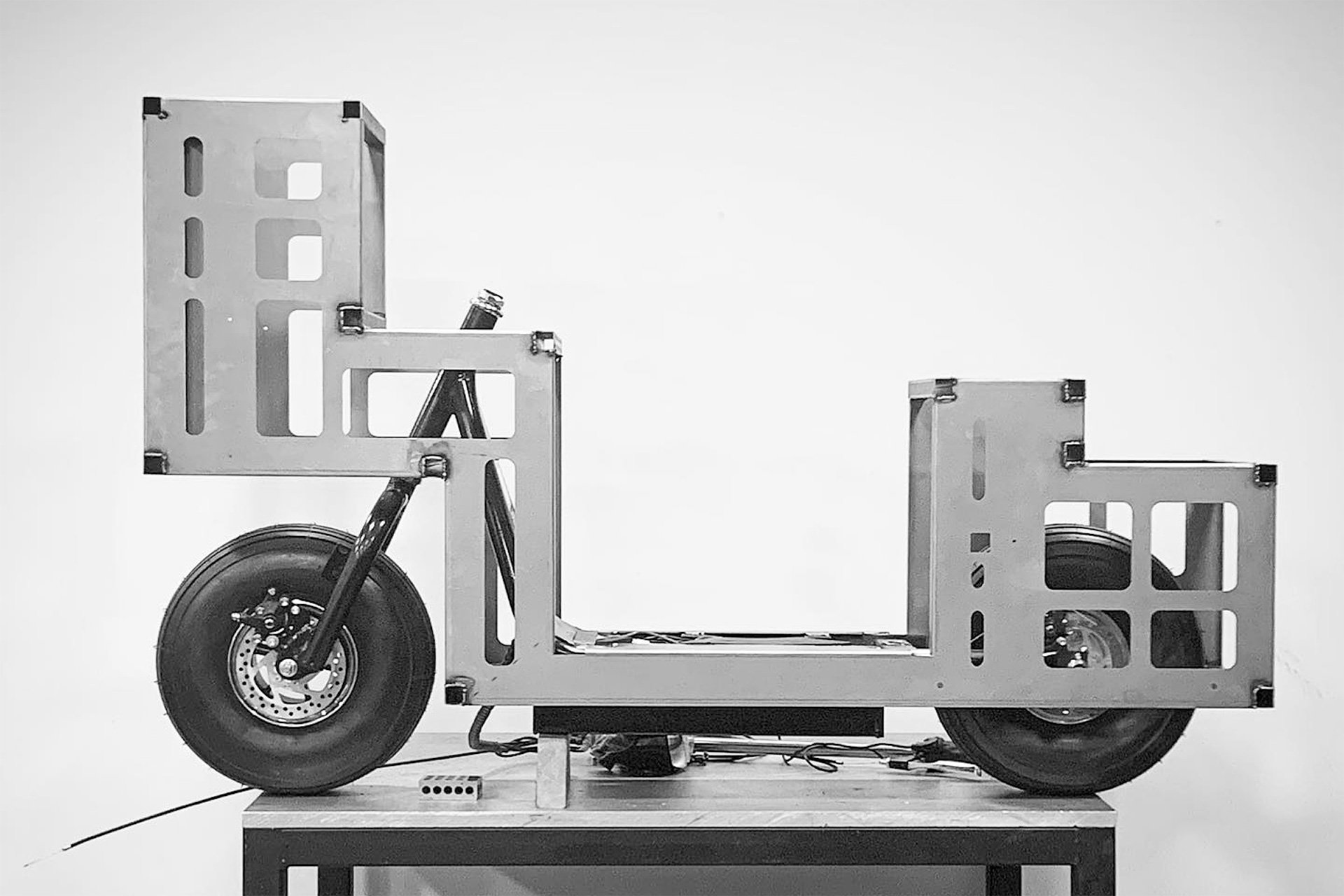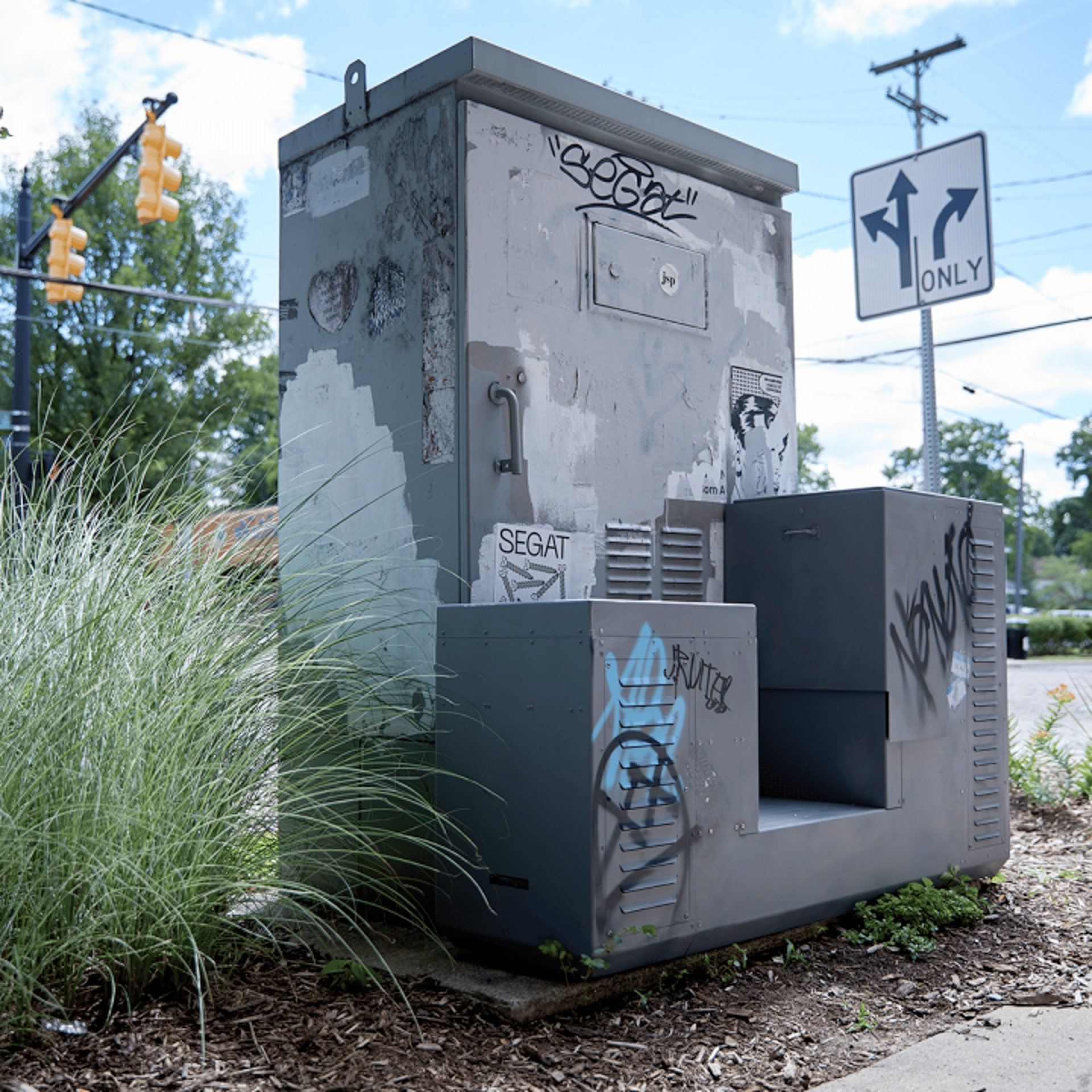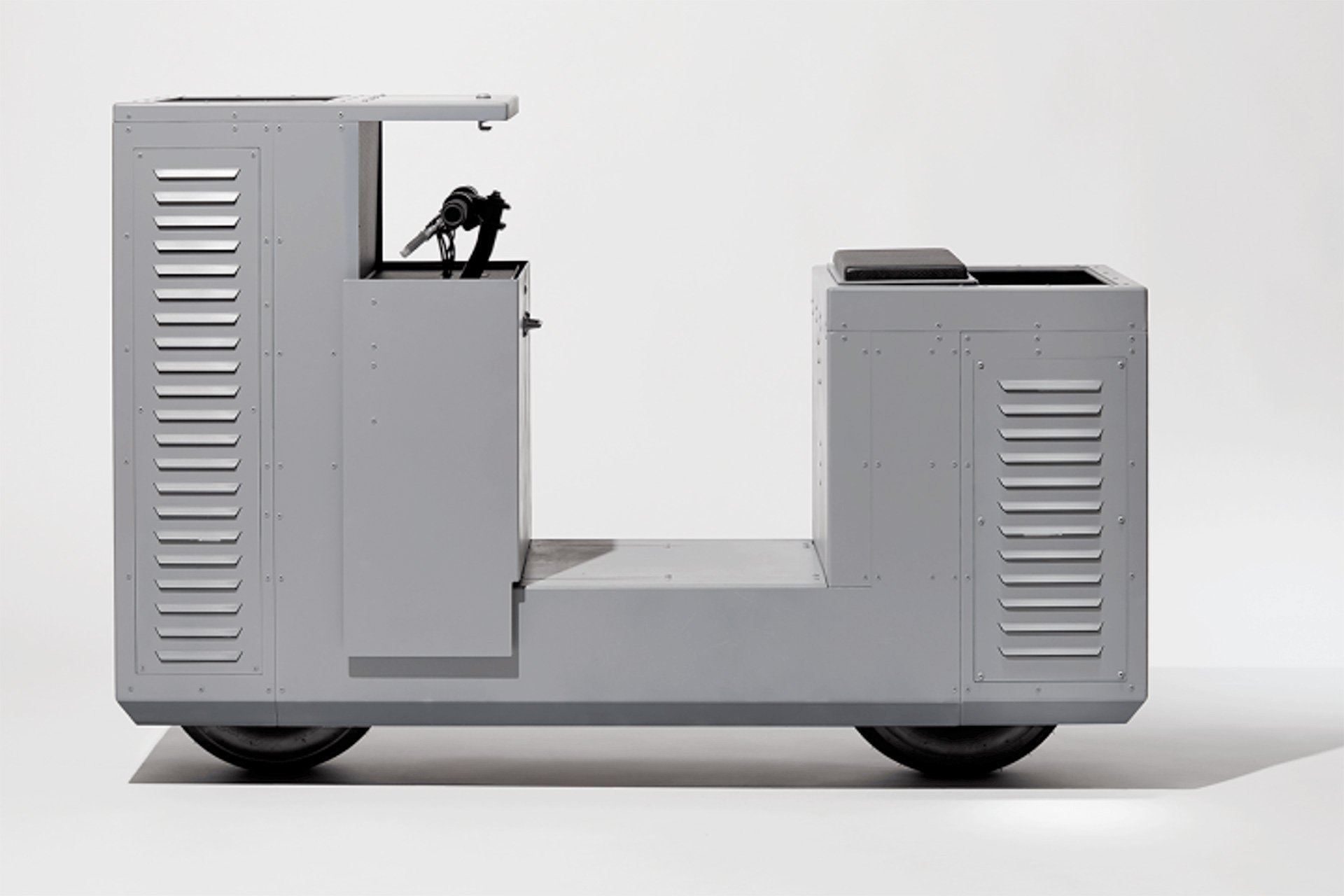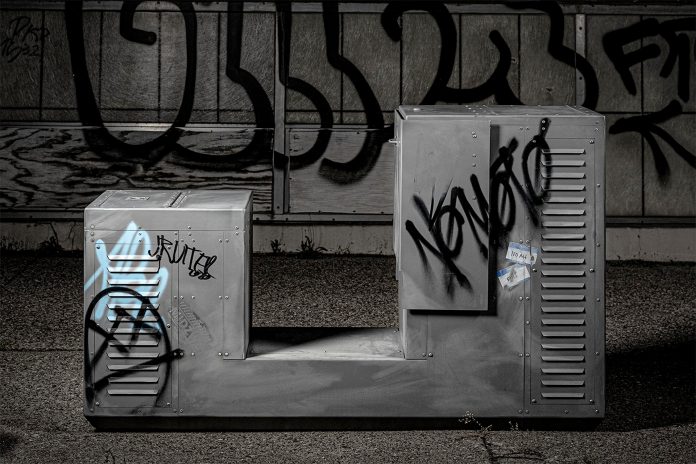The Nomoto, a unique concept from designer Joey Ruiter, takes an unconventional approach to motorcycle design. Disguised as a graffiti-covered telecom signal box, the Nomoto aims to outsmart bike thieves by blending seamlessly into urban landscapes. At first glance, it appears to be nothing more than public infrastructure. However, with the press of a button, the camouflaged shell rises, revealing a rideable electric scooter.
The Nomoto’s design simplifies the concept of a motorcycle, consisting of two metal boxes. When parked, its body lowers to the ground, eliminating the need for a traditional side stand. Subtle graffiti tags, including “JRUITER” and the bike’s name, hint at its hidden functionality for the observant eye.
When in use, a drop-down cover reveals basic handlebars, while a button elevates the body, partially exposing the wheels. The design includes flip-up covers that provide modest storage space, suitable for small items like shopping bags. A half-inch thick seat pad is tucked into the rear cover, adding a minimal layer of comfort. While its practicality is limited by its barebones features, the Nomoto offers a level of functionality not typically associated with art projects.
The Nomoto is powered by a basic electric scooter, omitting features like mirrors or indicators. Instead, it incorporates subtle headlight and brake light arrangements to maintain its stealthy aesthetic. This minimalistic approach highlights the concept’s focus on blending into its surroundings rather than standing out as a conventional motorcycle.

“I’m constantly disappointed in the lack of creativity in the products around me,” Ruiter remarked in an interview with Work Hard Play Hard. This sentiment drives his innovative designs, though the Nomoto remains an outlier in the mainstream motorcycle market. Ruiter might find some satisfaction in projects like Honda’s US$1,000 Motocompacto, a compact electric motorcycle that folds into a briefcase, but mainstream adoption of such creative concepts remains rare.

The Nomoto debuted at the MOTO MMXX exhibition at San Francisco’s Museum of Craft and Design in 2020. Despite its functional prototype, it never advanced to mass production and remains an art project. Its blend of practicality and unique aesthetic, however, sparks curiosity and demonstrates an alternative approach to urban mobility.

Source: Joey Ruiter



